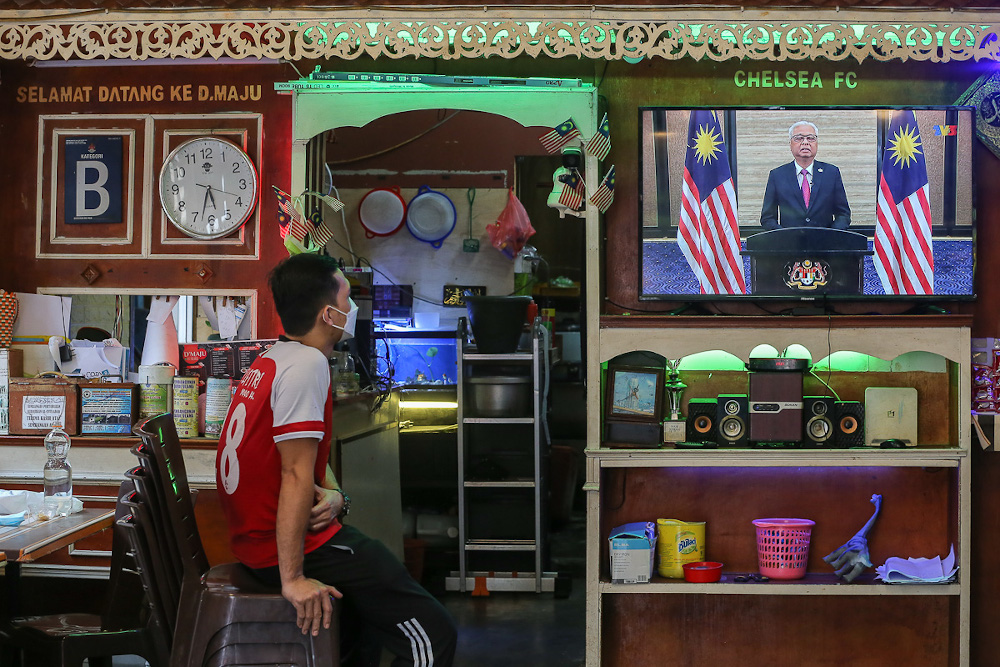KUALA LUMPUR, Aug 27 — Prime Minister Datuk Seri Ismail Sabri Yaakob predictable Cabinet choices were necessary to prevent another power tussle, analysts said after he unveiled a line-up that featured nearly all the ministers from the previous administration.
The choices were also likely driven by the need for “continuity” in the government’s pandemic response, but could come at the price of continued negative perception of the government stemming from some ministers’ handling of the Covid-19 crisis previously.
Still, the line-up could provide some political security for Ismail heading into the 15th general election.
“Politically he doesn’t want to so-called rock the boat,” said Oh Ei Sun, a senior fellow at the Singapore Institute of International Affairs.
“So, he would still want to keep essentially the same crew around and make sure they balance their weight around the ship. Hopefully, he will keep his political ship floating for a while.”
Shazwan Mustafa Kamal, associate director at Vriens & Partners, a public policy, government affairs and political risk consultancy, noted Ismail reserved most of the senior ministerial posts for key allies who threw their weight behind his nomination as prime minister.
Datuk Seri Azmin Ali retained the senior minister title and is still head of the International Trade and Industry Ministry, and the same was accorded to Datuk Seri Hamzah Zainuddin who kept the powerful Home Affairs Ministry. Both are from Bersatu.
Ismail’s Umno colleague, Datuk Seri Hishammuddin Hussein, was also retained as the senior minister heading the security cluster and has also been entrusted with the defence portfolio, which the former previously handled.
Like his predecessor Tan Sri Muhyiddin Yassin, Ismail avoided appointing a deputy prime minister.
Shazwan said the move could be seen as an attempt to project stability and continuity.
“By and large, the new prime minister’s appointment appears to indicate him wanting a sense of continuity, which is retaining mostly the same ministers in the previous administration, with allies close to him retaining most senior posts,” he said.
Ismail was criticised as part of the previous administration when the country’s Covid-19 situation deteriorated, forcing Malaysia into a line of economically devastating lockdowns that have yet to be lifted.

Unhappiness with the handling of the pandemic eventually allowed Umno to force Muhyiddin into resigning as the prime minister, to be succeeded by Ismail.
Pundits expected Ismail would try to reverse the negative views by selecting a Cabinet with better leaders who could better contain the pandemic and put the country back on the recovery path.
That could be the reason why he picked Khairy Jamaluddin to replace the heavily criticised Datuk Seri Adham Baba as the new health minister. Khairy was widely praised for his role as the minister overlooking the National Covid-19 Immunisation Programme (NIP).
Half of the country’s adult population have now been fully vaccinated, a feat Khairy’s supporters have attributed to the minister’s push to ramp up the vaccination drive in the last two months.
“Khairy Jamaluddin’s appointment as health minister is a telling sign of the government wanting him to lead the healthcare efforts and Covid-19 vaccination programme — MOH holds the budget for procurement of vaccines,” said Shazwan.
“There is also recognition that Khairy would likely be able to handle a ministry as demanding as MOH — highly scrutinized and critical to the government’s overall exit strategy,” he added.
But Khairy’s appointment as health minister, while welcomed, was unlikely to have the broad positive effect that Ismail would require to completely reverse public opinion of the government.
Analysts believed Malaysians would still harbour suspicions that some decisions affecting the government were politically motivated rather than for public interest, given that many of the ministers have retained their portfolios despite past criticism of them.
“The tragedy of this new but not so new Cabinet is the PM’s glaring prioritization of political interests above national interests,” said Universiti Sains Malaysia’s Ahmad Fauzi Abdul Hamid.
He cited Ismail’s choice not to include Umno deputy president Datuk Seri Mohammad Hassan as a possible bid to avoid splitting loyalty among Umno Cabinet members.
Ahmad Fauzi believed that Ismail could be eyeing the Umno presidency in the long term, which could explain why those perceived to be outside his faction have not been brought into his Cabinet.
“Sadly, this has come about at a critical juncture for Malaysia, when the political elites are so obviously struggling to rein in Covid-19 which are seeing record levels of infections and deaths,” the analyst said.
Yesterday, Ismail Sabri announced his 31 ministers including four senior ministers who made up his new Cabinet, along with 38 deputy ministers.
All but four of the ministers had been part of Muhyiddin’s administration while most also received the portfolios they previously handled.

















.JPG)


